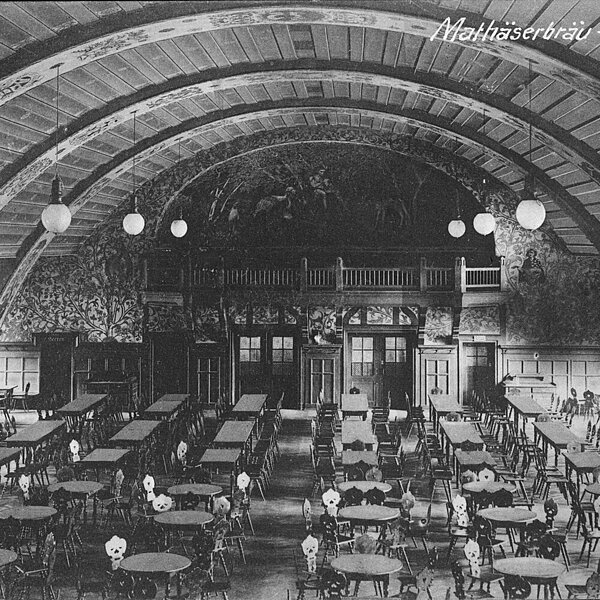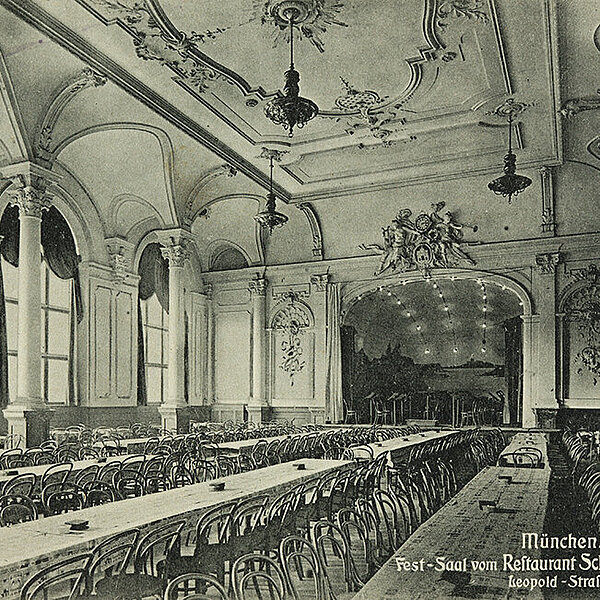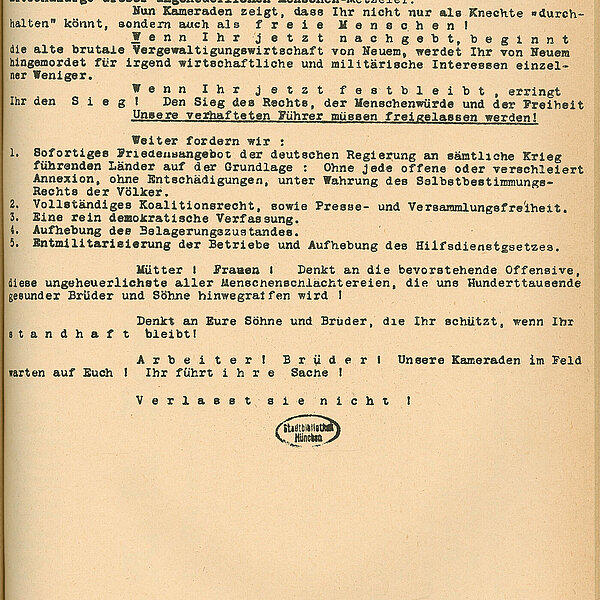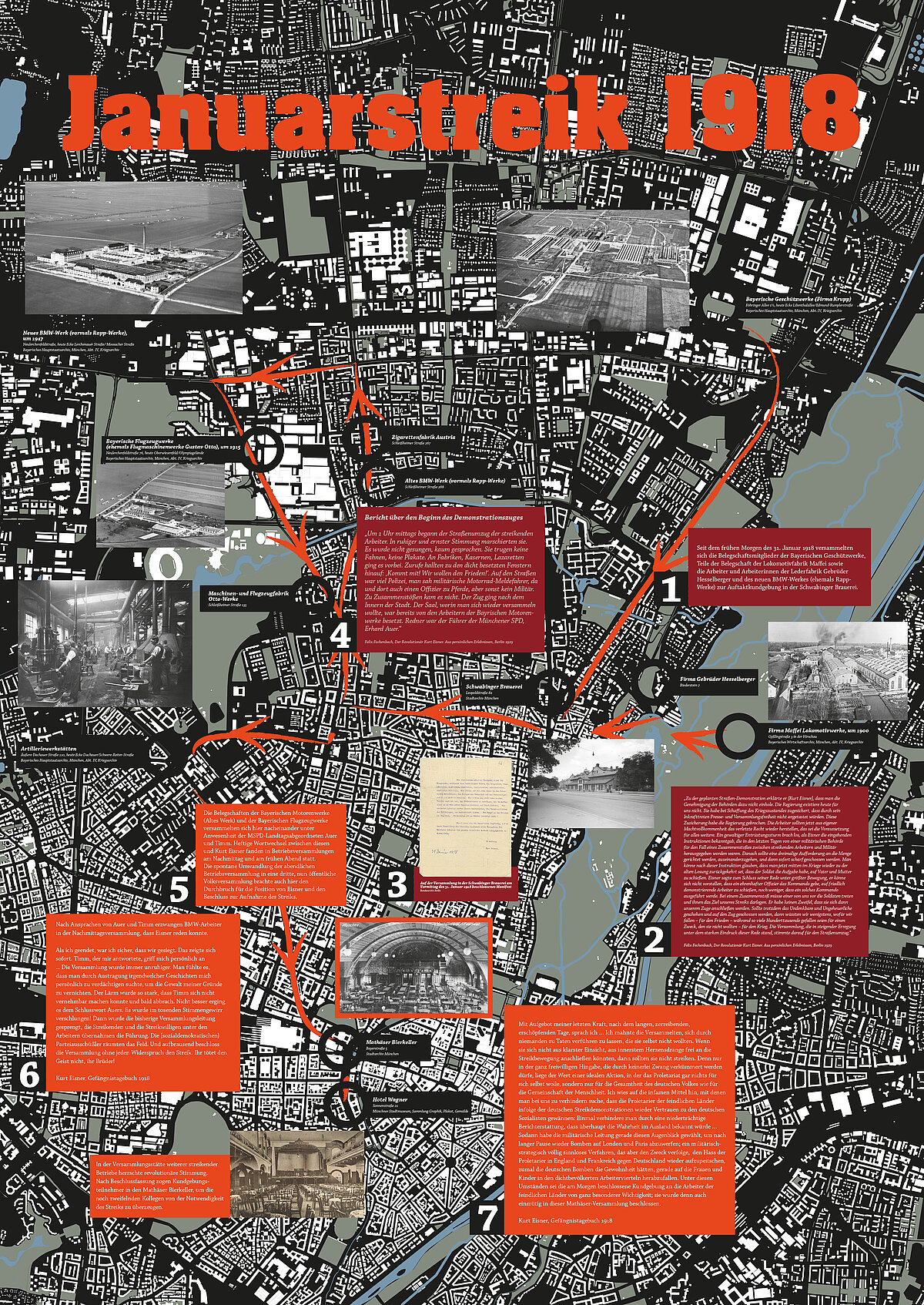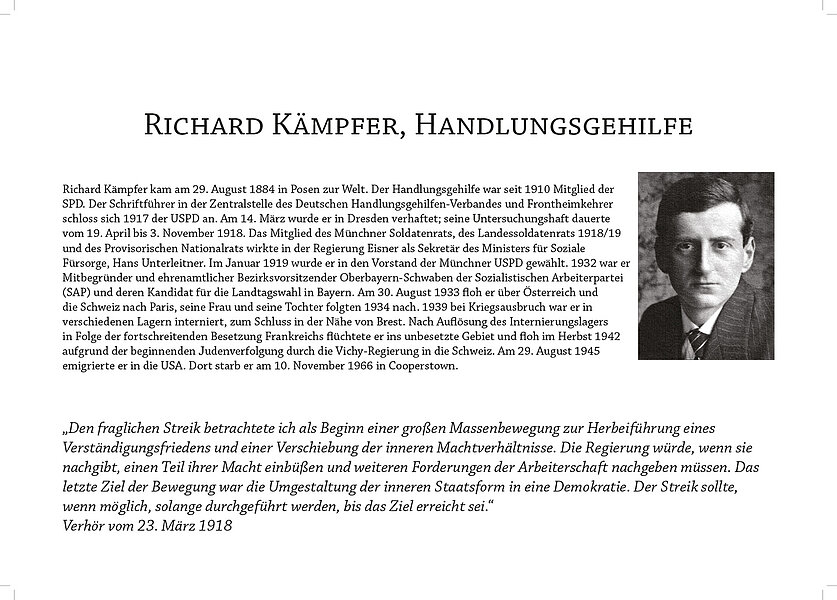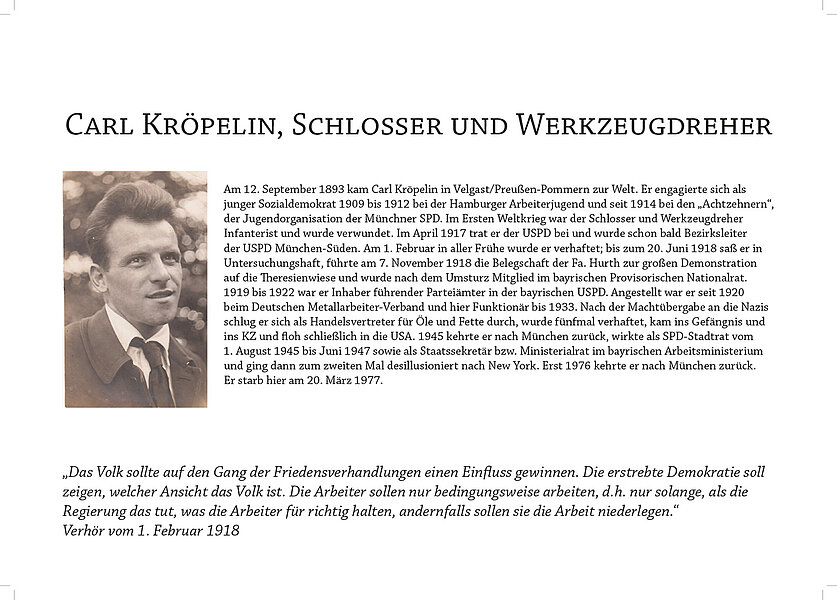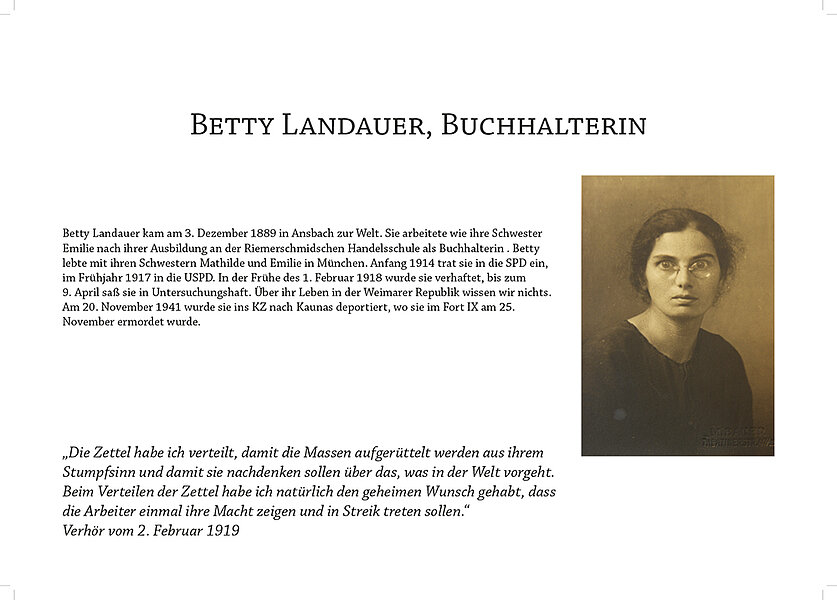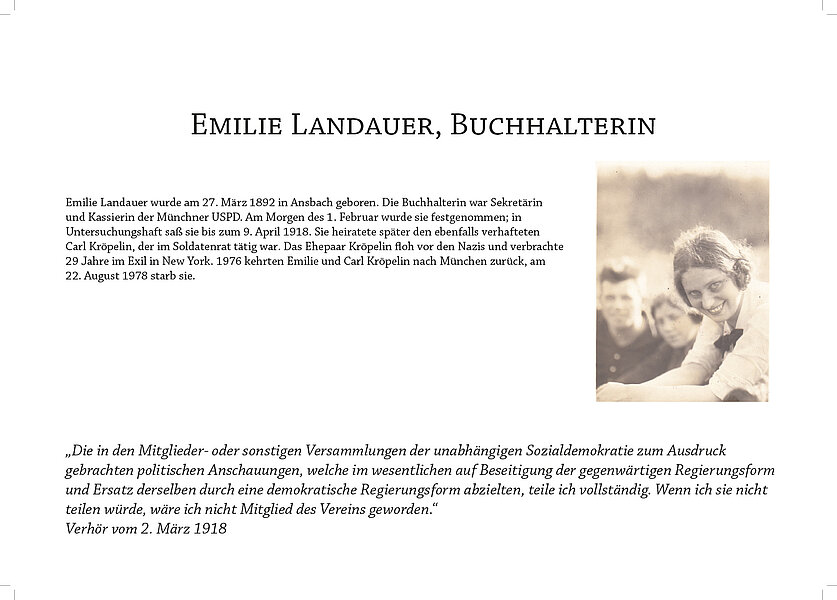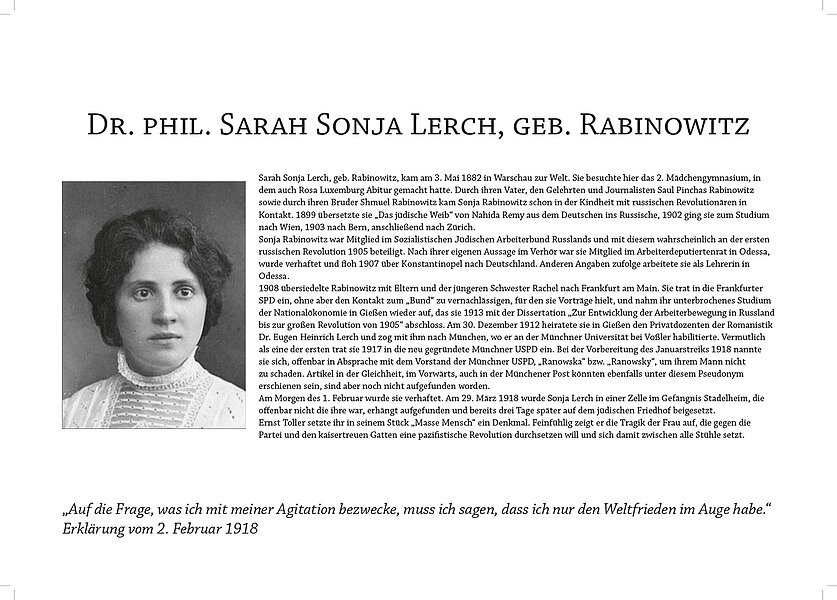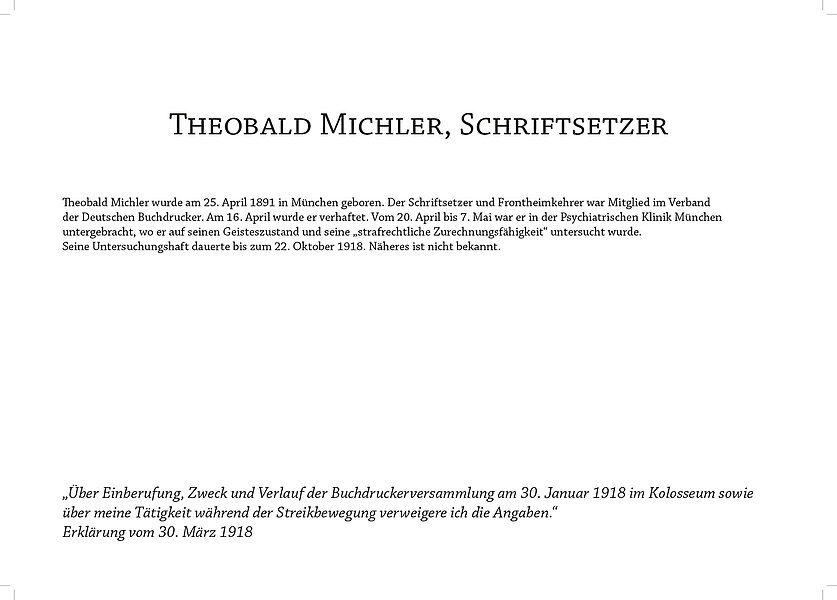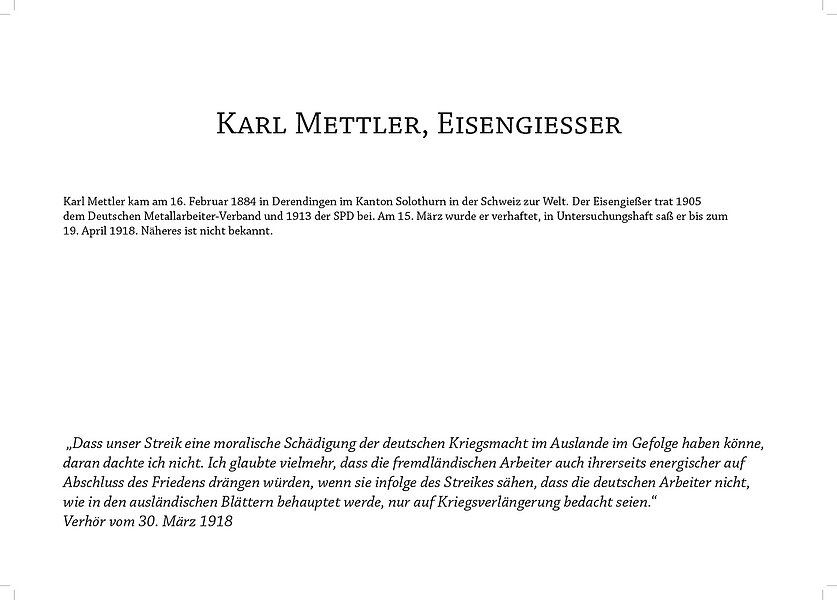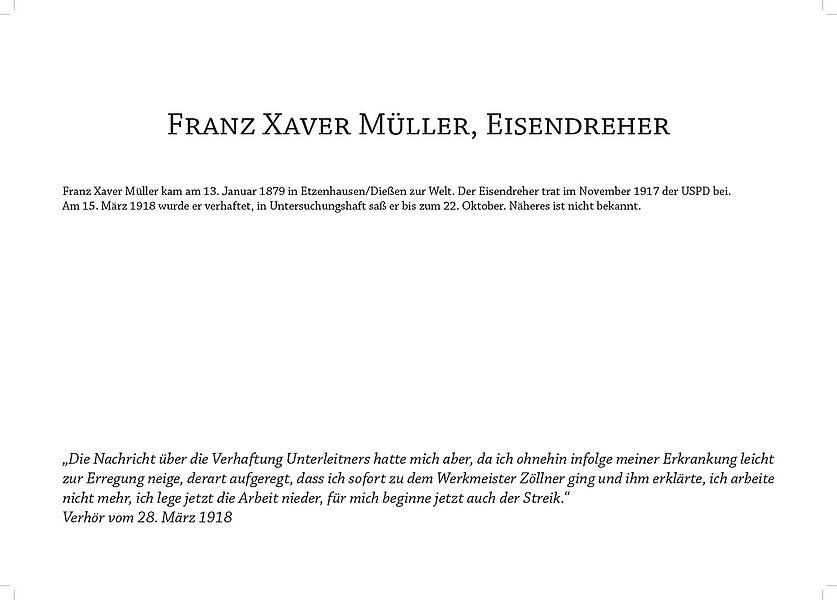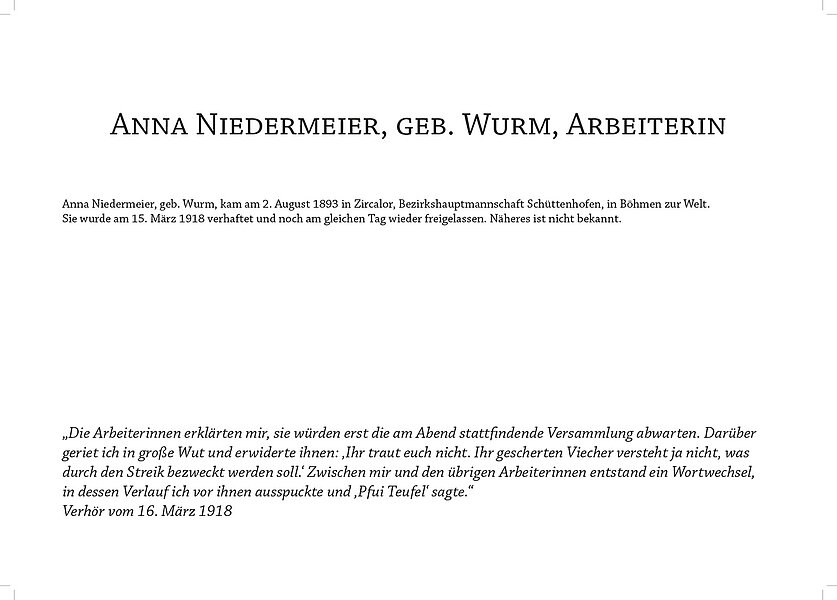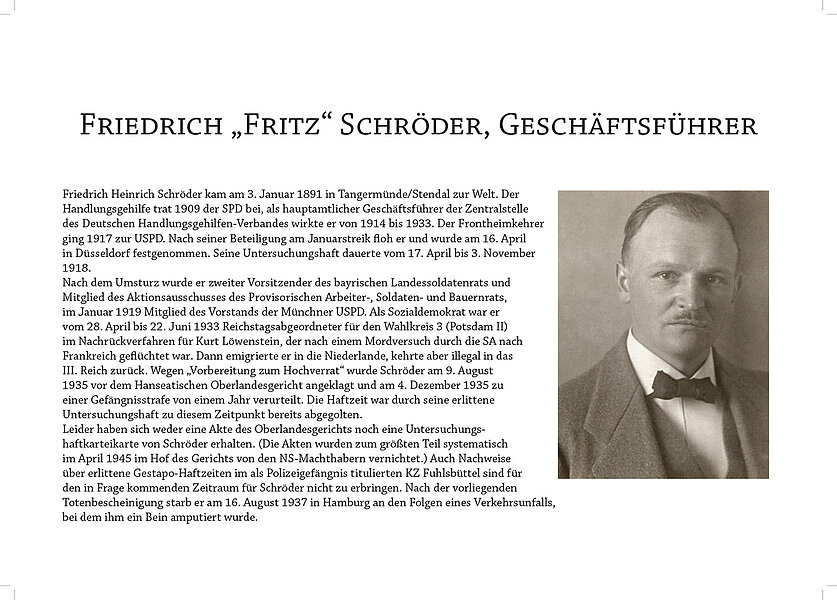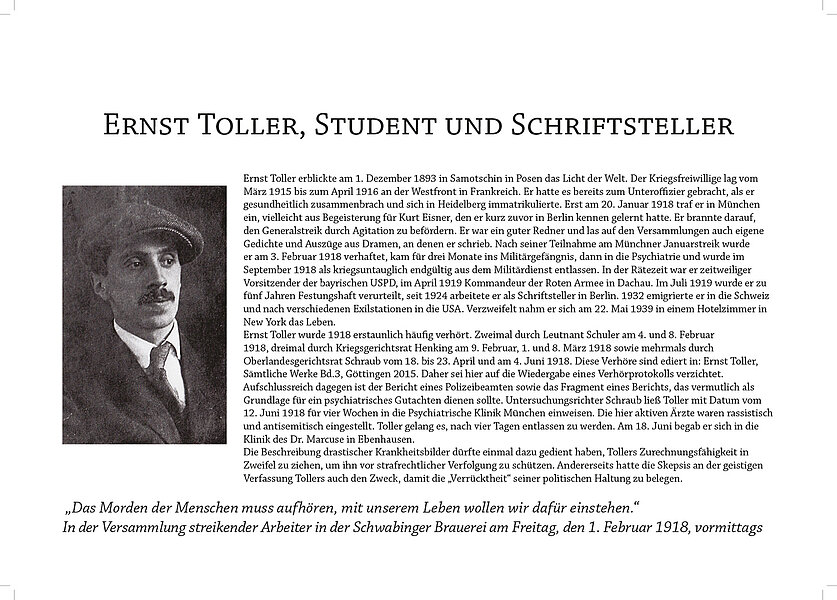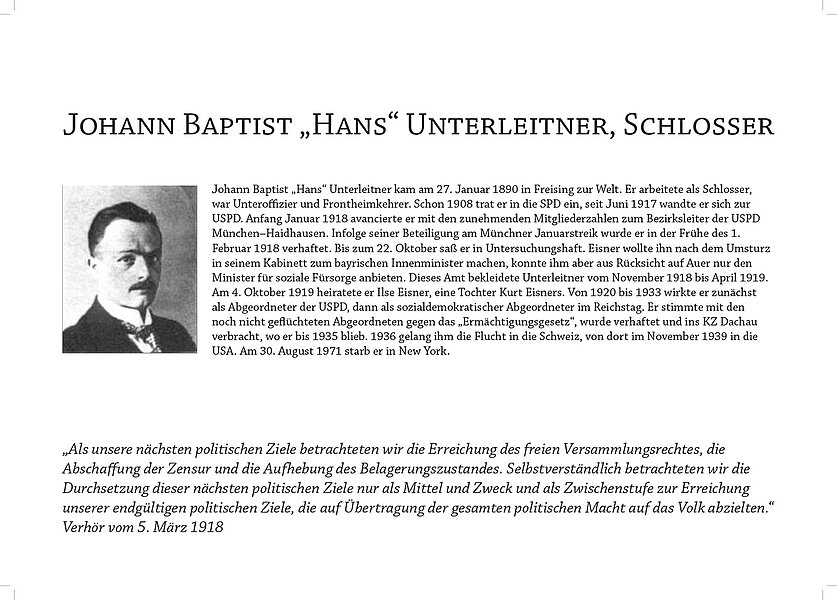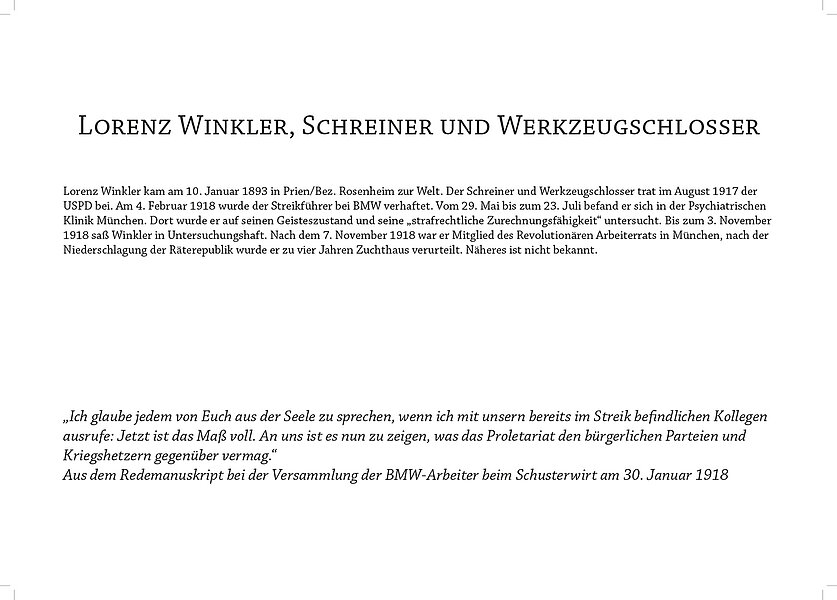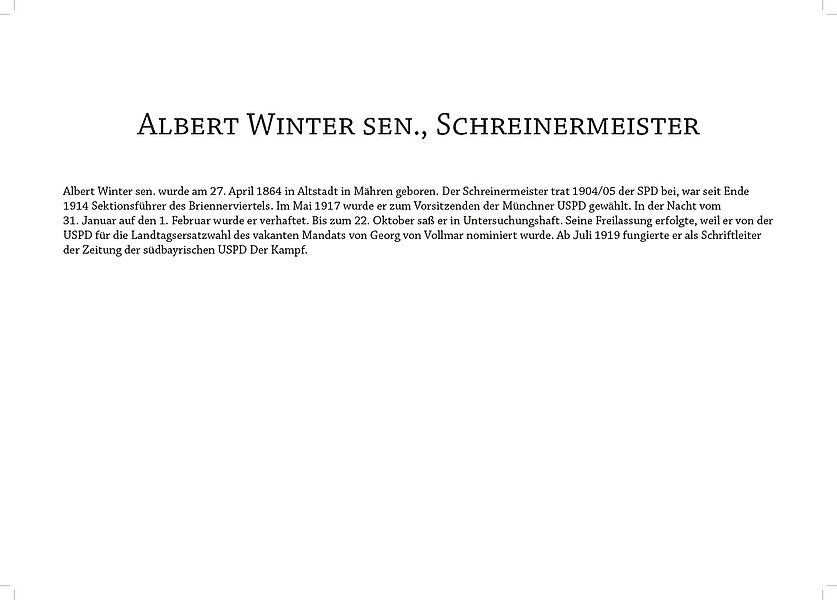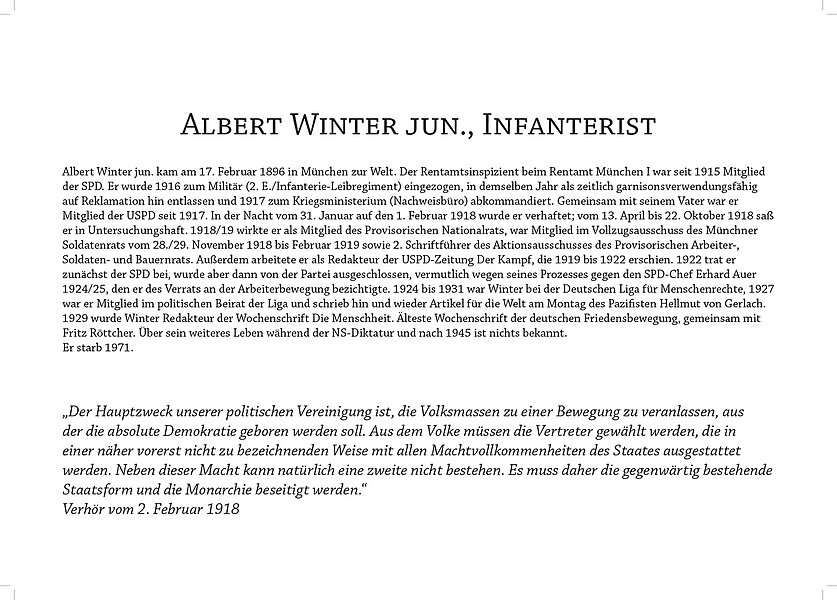The January strike of 1918
Eisner knows that Januarstreik 1918the appointment of Field Marshal von Hindenburg and General Ludendorff at the head of the Supreme Army Command in August 1917 is the beginning of the end for the political legitimacy of Bismarck’s German Empire. Both the Kaiser and Parliament are now in the grip of the military dictatorship.
Consequently, the Reichstag Peace Resolution is hardly worth the paper it is written on.
The entire nation is, to all intents and purposes, under a state of siege. The response to insubordination and hunger strikes in the High Seas Fleet is one of death sentences and imprisonment. The military leaders’ pursuit of a “victorious peace” on all fronts amounts to a declaration of war on the people of Germany.
Kurt Eisner reacts to this provocation. He wants to see a mass strike. He has hopes that it will spark a proletarian revolution in Germany.
Early on the morning of January 31,1918, the workforce of the Bayerische Geschützwerke munitions factory, parts of the Maffei locomotive plant’s workforce and the workers of the Gebrüder Hesselberger leather factory and the new BMW works (formerly the Rapp works) began gathering in the Schwabinger Brauerei for their first rally.
At 1 o’clock in the afternoon, the striking workers began to march through the streets. The mood was calm and sober. There was no singing and very little speaking, they carried no flags or placards. They passed by factories, barracks and military hospitals, calling out to the people who thronged the windows: 'Come and join us! We want peace!'. There were many police officers on the streets, but although you could see military motorcycle dispatch riders and the odd officer on horseback, there were no other signs of the military, and the march passed off without clashes. The marchers headed into the city center. The hall where they intended to reconvene was already occupied by the BMW workers. The speaker was Erhard Auer, the leader of the Munich SPD.v
(Felix Fechenbach, Kurt Eisner the Revolutionary. A Personal Account, Berlin 1929)v
Kurt Eisner and other members of the Independent Social Democratic Party of Germany (USPD) were arrested during the night of February 1, 1918 and taken to the police headquarters in Ettstraße.
On February 1, 1918, around 8,000 workers had come out on strike in Munich. A meeting of Bayerische Geschützwerke workers at the Schwabinger Brauerei discussed the hunch “that Munich’s Social Democratic labor leaders were not without blame for the arrests of Eisner and his comrades”.
They decided to march on the police headquarters, ask for an explanation for the arrests and demand the prisoners’ release. The 6,000 or so demonstrators marched down Leopoldstraße and Ludwigstraße, turned into Georgenstraße and then Türkenstraße, continued along Barerstraße and Max-Josef-Straße before finally entering Maxburgstraße via Maximiliansplatz.
A delegation of strikers was allowed as far as the cordoned-off police headquarters in Ettstraße, where the chief of police fobbed them off with the explanation that it was not he but the district attorney who was responsible.
Further works meetings and demonstrations were held on that and the two following days, now under the leadership of the newly appointed works committees.
The strike ended with one final rally on the Theresienwiese on Sunday February 3, attended by between 2,000 and 3,000 people. This was followed by another march to the police headquarters through downtown Munich, when the number of demonstrators swelled to around 5,000.
Only a handful of isolated, politically motivated strikes and peace demonstrations took place in Munich and Bavaria as a whole from this point until the dissolution of the state’s administrative and military structures in the fall of 1918.
Plan Your Visit
Contact
St.-Jakobs-Platz 1
80331 München
Phone +49-(0)89-233-22370
Fax +49-(0)89-233-25033
E-Mail stadtmuseum(at)muenchen.de
E-Mail filmmuseum(at)muenchen.de
Ticket reservation Phone +49-(0)89-233-24150

